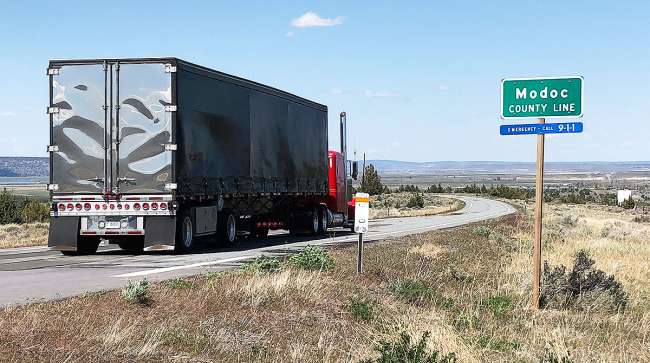Staff Reporter
FMCSA Extends HOS Emergency Declaration for Second Time

[Ensure you have all the info you need in these unprecedented times. Subscribe now.]
The Federal Motor Carrier Safety Administration has again extended its emergency declaration relaxing hours-of-service rules for motor carriers that are providing direct assistance in support of coronavirus-related relief efforts.
The agency announced May 13 that the emergency declaration, which applies to all 50 states and the District of Columbia, will remain in effect through June 14. The initial emergency declaration, issued March 13, was previously extended through May 15.
FINAL RULE PUBLISHED: Drivers get more HOS flexibility
The initial declaration granted exemption from Parts 390-399 of the Federal Motor Carrier Safety Regulations, which cover hours of service, parts and accessories needed for safe operation, and longer combination vehicles.
FMCSA has extended its national emergency declaration until June 14, 2020. This first-ever national HOS declaration provides regulatory relief for motor carriers assisting in emergency relief efforts in response to the #COVID19 outbreak. Learn more here: https://t.co/Z3GVY84pBT pic.twitter.com/TRhrhTJ0so — FMCSA (@FMCSA) May 13, 2020
“Because the presidentially declared COVID-19 national emergency remains in place, FMCSA is extending the emergency declaration and associated regulatory relief,” FMCSA’s notice states. “This extension of emergency declaration addresses national emergency conditions that create a need for immediate transportation of essential supplies, equipment and persons, and provides necessary relief from the FMCSRs for motor carriers and drivers engaged in the transport of essential supplies, equipment and persons.”
On April 8, the agency updated the notice to add an exception for liquefied gases, which are used in refrigeration units and cooling processes.
The earlier FMCSA emergency declarations stipulated relief for drivers providing direct assistance in support of emergency efforts to meet immediate needs for:
- Medical supplies and equipment related to the testing, diagnosis and treatment of COVID-19.
- Supplies and equipment necessary for community safety, sanitation and prevention of community transmission of COVID-19 such as masks, gloves, hand sanitizer, soap and disinfectants.
- Food, paper products and other groceries for emergency restocking of distribution centers or stores.
- Immediate precursor raw materials, such as paper, plastic or alcohol, that are required for the manufacturing of essential items.
- Fuel.
- Equipment, supplies and persons necessary to establish and manage temporary housing or quarantine.
- Persons designated by federal, state or local authorities for medical, isolation or quarantine purposes.
- Persons necessary to provide other medical or emergency services.
FMCSA emphasized that the emergency declaration does not grant drivers relief from regulations such as speed limits. Drivers are not exempt from requirements relating to commercial driver licenses, drugs and alcohol, hazardous materials, size, weight and registration requirements.
Motor carriers cannot require or allow a fatigued driver to operate a truck. A driver who informs a carrier that he or she needs immediate rest must be given at least 10 consecutive hours before returning to service.
Extension of Emergency Decl... by Transport Topics on Scribd
In another effort to ease conditions for drivers operating during the pandemic, FMCSA issued a notice March 24 indicating limited exemptions will be granted for expired commercial driver licenses, learner’s permits and medical certifications.
FMCSA also issued a three-month waiver allowing truck drivers with commercial learner permits to operate during the pandemic without a commercial licensed driver in the front seat of the cab, provided the CDL driver is in the truck.
Want more news? Listen to today's daily briefing:




